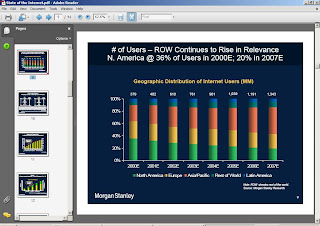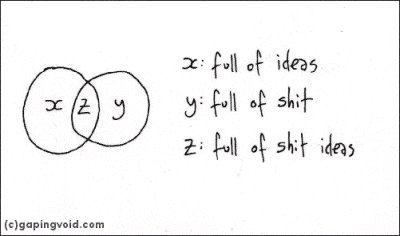
Bringing you... Windows Vista Sample Music. They are a total of 11 files (in WMA format), across a spectrum of different genres. Get them here.
(Thanks to Pak for this.)

Jajah Web connects existing traditional landline or mobile phones with calls that are set up via Jajah's Web site. Callers type in their own number and their desired destination number in a Web form. The Jajah service first rings the caller. After the caller picks up the phone the destination number is then dialled and the connection is established.
Jajah claims that their service works with any standard web browser. It does not require a broadband connection, but it is necessary to have internet access to originate the call.
(Source: Wikipedia)
JAJAH Free Global Calling allows you to make free local and international phone calls. It applies to land line and mobile calls to and within: the United States, Canada, China, Hong Kong and Singapore; and it applies to landline calls to and within Australia, New Zealand, Taiwan, the UK, Germany, France, Italy and most other European nations.
It applies when both call participants are registered and active JAJAH users. In countries where free phone calls are not available, or if someone is calling a non-JAJAH member, calls are subject to JAJAH’s regular low rates.
Technically speaking, when you initiate a call through JAJAH, from the phone company's perspective it is like you are accepting an incoming call. Normally phone companies do not charge for incoming calls, but if you normally pay for incoming calls, the same will apply with JAJAH. The payment for the calls initiated by JAJAH is done separately from your regular phone bill directly to JAJAH.
Also if you are outside your mobile provider’s coverage, certain fees, called “roaming fees” will apply. This additional charge is by your cellular carrier and it is paid to him, and not to JAJAH
A DIY mini-LED menorah for hanukkah. These are "regular" size, 5 mm diameter LEDs; they take up a lot more room than that tiny chip does.
It was theorized that the reason for this was that fathers were stopping off at Wal-Mart to buy nappies for their babies, and since they could no longer go down to the pub as often, would buy beer as well. As a result of this finding, the supermarket chain is alleged to have the nappies next to the beer, resulting in increased sales of both.This urban legend has grown to become one of the most famous exemplar of the usage of data mining. (Anyway, correlation does not imply causality!)
 Adobe has released Adobe Reader 8, which sprouts an entirely new interface and a slightly faster start up time. Scrolling is a lot smoother and comfortable as well. Still, the reader eats up more than 50 MB of memory when in use, as compared 8 MB for Foxit Reader, which starts up blazingly fast. (So if you have not done so, download Foxit Reader and give it a spin.)
Adobe has released Adobe Reader 8, which sprouts an entirely new interface and a slightly faster start up time. Scrolling is a lot smoother and comfortable as well. Still, the reader eats up more than 50 MB of memory when in use, as compared 8 MB for Foxit Reader, which starts up blazingly fast. (So if you have not done so, download Foxit Reader and give it a spin.)